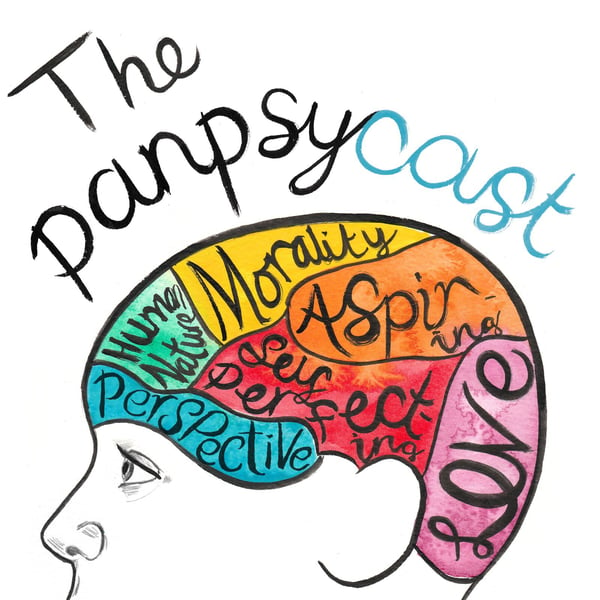Episode 33, Yujin Nagasawa and 'The Problem of Evil for Atheists' (Part II)
The Panpsycast Philosophy Podcast
Jack Symes | Andrew Horton, Oliver Marley, and Rose de Castellane
4.8 • 604 Ratings
🗓️ 25 February 2018
⏱️ 46 minutes
🧾️ Download transcript
Summary
Please visit our Patreon page and show your support - www.patreon.com/panpsycast! Everything you could need is on www.thepanpsycast.com! Please tweet us your thoughts at www.twitter.com/thepanpsycast.
For more Information on Yujin Nagasawa, please visit: www.yujinnagasawa.co.uk. Yujin’s latest book: Yujin Nagasawa, Miracles: A Very Short Introduction - https://www.amazon.co.uk/Miracles-Very-Short-Introduction-Introductions-ebook/dp/B07663TS81. The paper we are discussing this episode: Yujin Nagasawa, The Problem of Evil for Atheists - https://docs.wixstatic.com/ugd/6d4b8e_e2fede5338c949e29637ccd5b79b6609.pdf.
Yujin Nagasawa is Professor of Philosophy at the University of Birmingham, as well as President of the British Society for the Philosophy of Religion and Co-Director of the John Hick Centre for Philosophy of Religion. Obtaining his PhD from the Australian National University in 2004, Nagasawa’s work in philosophy is extensive, focusing on a range of topics from the problems surrounding consciousness to the nature and existence of God. Our focus for Episode 33, is Nagasawa’s ‘The Problem of Evil for Atheists’. The argument can be stated as follows; atheists believe that the world is generally good and they are happy and grateful to exist, i.e. they are existential optimists. However, our entire evolutionary biological system is based upon the painful, miserable suffering of the weak. So, why should we think that the world is overall good and that we should be grateful to exist, if our existence depends on a violent, cruel and unfair biological system which guarantees pain and suffering for unaccountably many sentient animals? Nagasawa argues that the theist is in a better position to answer this question than the atheist, suggesting that the problem of evil provides a good reason to abandon atheism and adopt theism. Part I. ‘The Problem of Evil for Atheists’. Part II. Further Analysis and Discussion.
Transcript
Click on a timestamp to play from that location
| 0:00.0 | Part 2. Further analyses and discussion. So the systemic problem of evil, as stated in part one, is against the atheist |
| 0:23.6 | as well as the theist, an optimistic theist and atheist. How would it go against the realist |
| 0:30.5 | or absurdist atheist? I want to give Alba Camus, who our listeners will remember, and his understanding of the world. |
| 0:40.5 | So just to recap, the gods are condemned syphesus in this myth to ceaselessly roll a rock |
| 0:47.2 | up to the top of a mountain, and the stone would fall back down on him over and over again, |
| 0:52.4 | because they thought with some reason that there's no more |
| 0:54.8 | dreadful punishment than futile, hopeless labour. So Syphysus, his life is absurd, it's |
| 1:00.6 | pointless, and it's full of suffering, like the, like how the atheist might see the evolution |
| 1:06.8 | or the systemic problem of evil, as we've stated. Camus' solution isn't to be an optimist or embrace philosophical suicide or even |
| 1:16.5 | theism or something like this. He tells us, and I'm going to quote from him here, |
| 1:20.5 | Siphusis teaches us that the higher fidelity that negates the gods and raises rocks, he too |
| 1:25.7 | concludes that all is well. The struggle itself towards the |
| 1:28.9 | height is enough to fill a man's heart. One must imagine syphesus happy. So by embracing the |
| 1:35.2 | true nature of the world, we live authentically. We embrace each day and we cast aside the stresses |
| 1:40.1 | that weigh us down. We show compassion to our absurd neighbours. I guess maybe I misspoke a moment |
| 1:46.3 | ago when I said that Camus doesn't say we should be optimistic, because there's a degree of optimism here |
| 1:50.9 | when Siphers smiles against the gods who have given him this cruel world. So this act of rebellion, |
| 1:57.2 | smiling against nature, so when Dawkins finds himself at the end of four and a half billion |
| 2:01.6 | years of suffering and pain, is he not allowed to smile up at the galaxy, which is put him here |
| 2:07.3 | and smile against this cruel world? Does the realist or absurdist atheists relieve themselves |
| 2:15.9 | of the challenge because they can be happy and they can be in awe |
| 2:21.7 | or sit in wonder almost in a state of worship because they're overwhelmed by the world they find |
... |
Please login to see the full transcript.
Disclaimer: The podcast and artwork embedded on this page are from Jack Symes | Andrew Horton, Oliver Marley, and Rose de Castellane, and are the property of its owner and not affiliated with or endorsed by Tapesearch.
Generated transcripts are the property of Jack Symes | Andrew Horton, Oliver Marley, and Rose de Castellane and are distributed freely under the Fair Use doctrine. Transcripts generated by Tapesearch are not guaranteed to be accurate.
Copyright © Tapesearch 2025.

